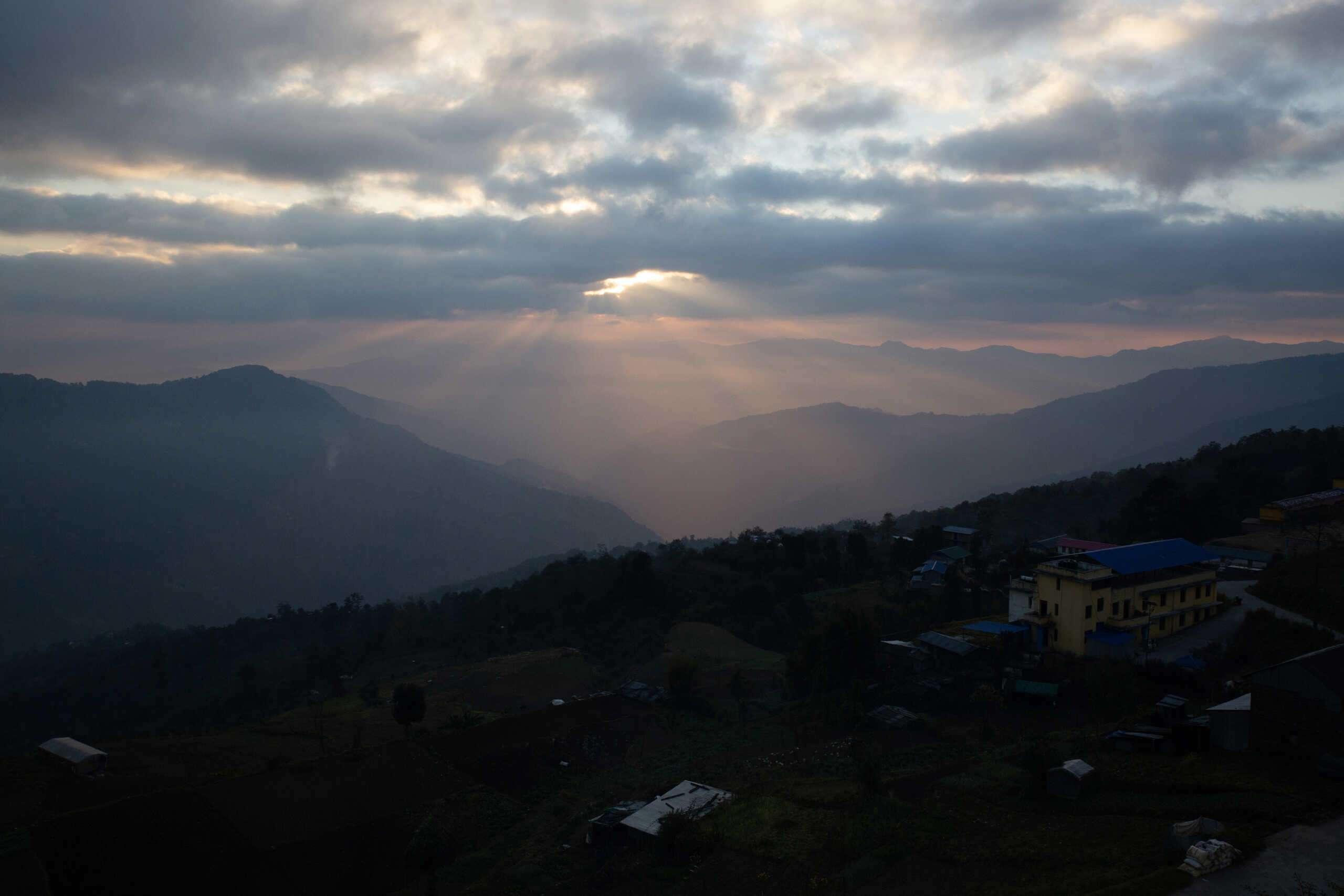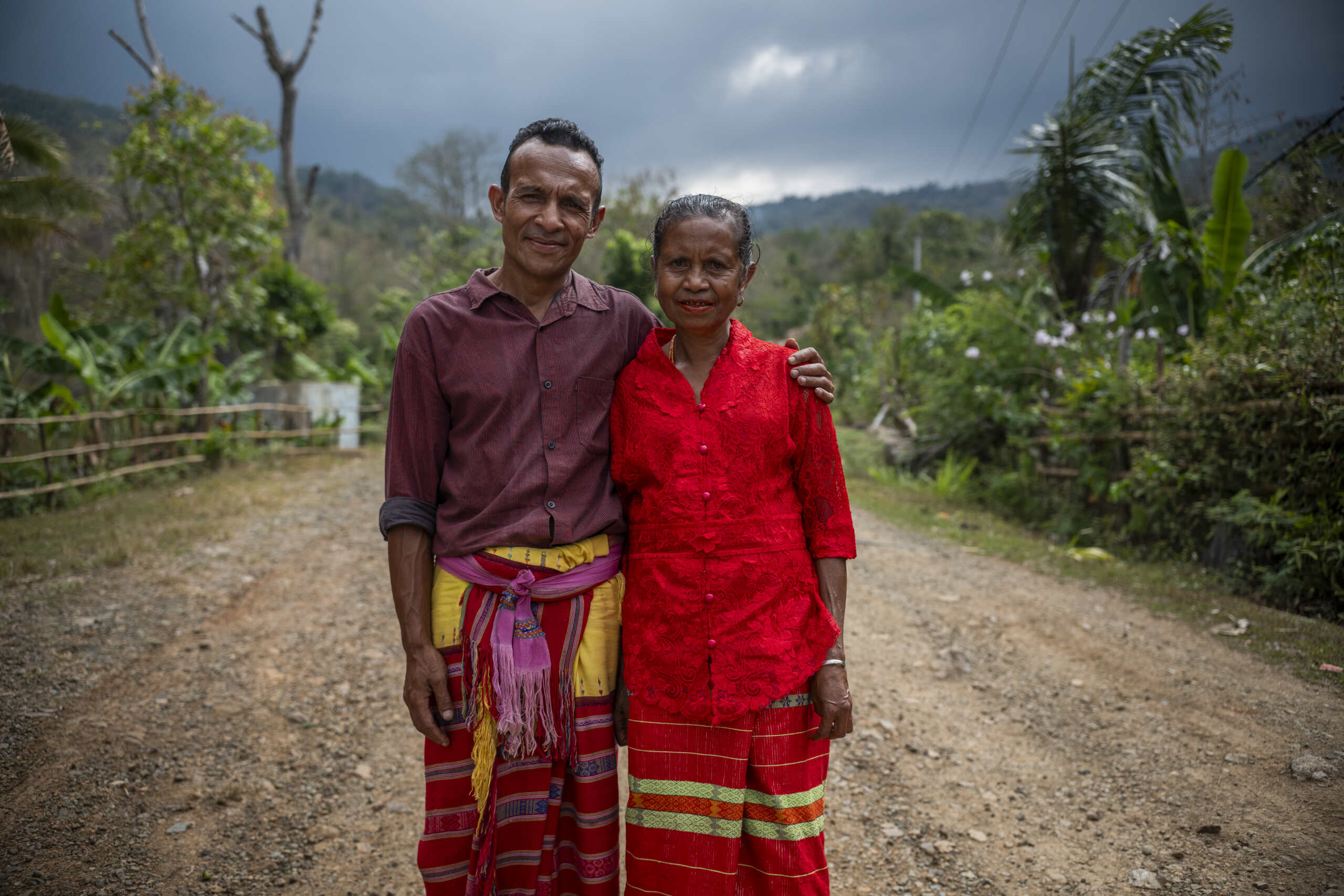Ipul’s Story
Pacific, Stories | June 25, 2024
I grew up in a village in Papua New Guinea and attended a native church. My grandfather was Catholic, so my parents went to Catholic Church. The Bible was with us, but it was not the doctrine or the book that we would take to the church; rather it was the songs that formed the core of our church worship and my early church memories.
When I went to high school, I started joining scripture union groups. I think I was in grade 8 that I got baptised into the Evangelical Alliance Church, because of an uncle who was a pastor there. He would invite us to go to church with him, me and my cousin sister. So, we would go there and it was quite interesting. That’s the beginning of my personal coming into Christian faith.
I acquired polio at an early age (having a physical impairment), but that did not deter me from being active in the church in terms of preparing the church for service each Sunday. Early in the morning at about 5 or 6am we would collect flowers and put it in the altar, getting the church ready for worship each Sunday.
The faith that I grew up with helped me to realize that I have a place and role to play in the church.
Growing up in the village, there were quite a number of people my age that had polio, they were affected differently, but mostly physically. I used my hand to support my left leg to walk.
When I was growing up, that actually impacted the way that I would look at people with disabilities and it kind of made me not want to be part of any disability movement. But that became more prominent when I went to high school and the issue of stigma and discrimination was prominent. There were times when I would question, why did this happen to me? It really affected my parents; they were so protective of me and worried about my security.
In primary school, when it was raining, my siblings and cousins would carry me to school. When I went to high school my peers and mates would help me carry my books while walking around and climbing steps. So, there were people who assisted me all along.
My dad’s younger brother worked in carpentry. He would send me walking sticks but I never liked the crutches because they got my armpit sore, kind of made me walk slowly.
I actually only started using crutches later in life, after an accident when I actually was walking down a hill. As I walked out of the house, I slipped and broke both bones in my left leg (polio affected leg). I was put in the cast for months, and because of the fracture, it made my left leg weak and I had to start using crutches.
At this time in my life I was fairly advanced in my professional career. I had been put in charge of a scientific research institute when my research manager went on leave and I had to visit projects in remote rural areas. I was in the car and my legs were in full cast, but I had to do this visit. The car got stuck on the road 50 metres away and I was thinking, I cannot go down there with the walking stick. I looked at the driver and said ‘I’m going to pray and we will get over this’, and we did. It was around this time that I started to get this urge that my calling in life was to start to advocate about the issue of disability in my country.
I was invited to attend a women with disability leadership workshop. That was when I started to recognize my identity as a person with disability. It got me to realise that maybe this is my calling in life.
The realisation became even clearer as I encountered stories of several women with disabilities.
One of these women was a nurse, she was in a wheelchair. She wanted to come to the city with her children but no one could pick her up because most of the vehicles were trucks. Her children were pushing their mother on the road. That story touched me.
These events pricked my conscious to take a full turn in my career, leaving my professional career and moving into my passion. My children had faith in me, they allowed me to take that step because I was very strong. I moved from my career in scientific research into disability advocacy. One fellowship evening, I was offered to speak to the students at the University that I was working at. It was three steps to the podium and was difficult walking up with my crutch. I used that opportunity to speak about inaccessibility in church environment and exclusion of people with disabilities exercising their faith.
After the fellowship a student who does sign interpretation approached me and said he found it difficult to bring people to church because there is no sign interpreter, we are often left out.
When you look at the teachings, preachings and activities Christ came to do, he came to seek out those who were lost. The deaf, the blind, and the outcast.
On another occasion, I was asked to speak to leaders of mainstream churches in PNG and there was a young mother there and she was touched from what I said. She had a child with disability and she looked at the work she was doing and started to take an inclusive approach on the program. Now her church, the Lutheran church has started doing programs for people with disability.
We tend to do things for people with disability but do not really empower them. Jesus came to empowered people. When he returns he will ask what did you do for the least of these my brothers and sisters?
Pray with Ipul
Loving God,
You make each living person in your image and likeness
And present us as a gift and seed of love to the human race. We praise you, Lord, for all of your gifts.
Lord, we see you in all those living with disabilities
And give you thanks for loving parents
Who welcome and nurture them Even in the face of obstacles or rejection.
Guide our hands to build access and welcome Guide our minds
to understand the power and wisdom of human vulnerability Guide our actions to create communities
Open to the gifts of each individual.
May we understand that your body is incomplete
When people are left behind.
We pray through Christ, Our Lord.
Amen
Be encouraged by more stories of life, faith and disability.
https://www.cbm.org.au/stories/ipuls-story
Related Stories

Building inclusive, climate resilient communities in Bangladesh
Highlights from DFAT Post’s visit In January 2026, representatives from the Australian High Commission in...

Week 1 – Lent series 2026
As we enter the season of Lent, we’re taking time as a community to pause, reflect, and draw closer to the heart of God. Lent invites...

How CBM is making a difference in Indonesia
For more than 45 years, CBM Global has been working alongside communities in Indonesia to ensure people with disabilities...
